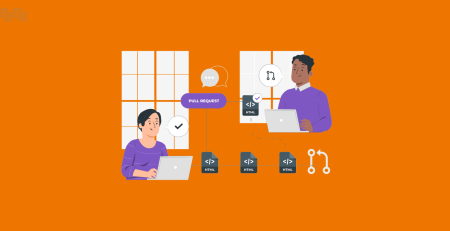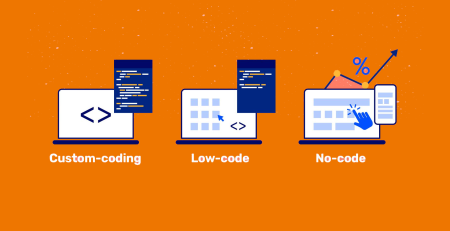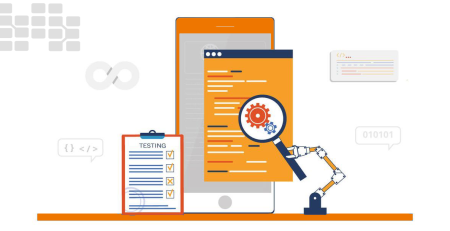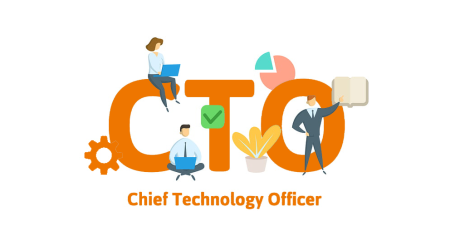Full Stack Developer or Specialized Developer: Which One Fits Your Project?
Selecting the ideal developer for your project is a crucial choice in the world of software development that may have a big influence on how successful it is. You’ll frequently have to decide between employing a full stack developer and a specialist developer when it comes to this decision. Before choosing a choice, it is crucial to comprehend the unique requirements of your project because each alternative has a different set of benefits and factors to take into account.
We’ll examine the distinctions between full stack and specialized developers in this blog article and offer guidance to help you choose which one is the greatest match for your project.
Full Stack Developer
Full stack engineers are the epitome of flexibility, which is desired in the changing world of software development. These programmers have a wide variety of abilities that include both front-end and back-end development, making them the Swiss Army knives of the IT industry. We’ll discuss the function of the full stack developer, their distinguishing traits, and why they are a crucial component of contemporary development teams in this blog article.
Full stack developers have a specialized skill set that enables them to move between various software project tiers. These are some essential facets of their job:
- Versatility: Full stack developers are jacks-of-all-trades. They are proficient in a variety of programming languages, frameworks, and tools, enabling them to work on both the client side (front-end) and server side (back-end) of an application.
- End-to-End Development: They can handle the entire software development stack, from designing user interfaces and building responsive web applications to setting up databases and managing server-side logic.
- Rapid Problem-Solving: Full stack developers are adept problem solvers. They can identify issues across the entire application and implement solutions efficiently.
- Cost-Efficiency: For startups and smaller teams, hiring a full stack developer can be a cost-effective choice. Their ability to wear multiple hats can save on hiring expenses.
- Faster Prototyping: Full stack developers excel at creating functional prototypes and minimum viable products (MVPs) swiftly, making them valuable contributors in fast-paced development environments.
The Toolkit of a Full Stack Developer
A full stack developer’s toolkit is diverse, encompassing a broad range of technologies. Here are some of the tools and skills they typically possess:
- Front-End Technologies: HTML, CSS, JavaScript, React, Angular, Vue.js, etc.
- Back-End Technologies: Node.js, Ruby on Rails, Django, PHP, Express.js, etc.
- Databases: MySQL, PostgreSQL, MongoDB, SQL Server, etc.
- Version Control: Git and platforms like GitHub or GitLab.
- API Integration: Consuming and building RESTful and GraphQL APIs.
- DevOps: Basics of server management, deployment, and continuous integration.
- Problem-Solving: Critical thinking and debugging skills.
Why Your Team Needs a Full Stack Developer
In today’s fast-paced development landscape, having a full stack developer on your team can be a game-changer. Here’s why:
- Efficiency: Full stack developers can streamline development workflows, reducing communication gaps between front-end and back-end teams. This efficiency translates to faster project development.
- Adaptability: They can easily switch between different project aspects, ensuring a smoother development process and quicker responses to changing requirements.
- Cost Savings: For startups and smaller projects, hiring one full stack developer with a diverse skill set can be more budget-friendly than assembling a team of specialists.
- Prototyping Prowess: Full stack developers are skilled at creating prototypes and MVPs, allowing businesses to test concepts and gather user feedback early in the development cycle.
In the contemporary software development environment, the full stack developer is a flexible, essential asset. They are valuable team members because of their capacity to work across the full software stack, navigate various development levels, and adjust to shifting project requirements. The full stack developer is an essential element that may help you reach your goals successfully, whether you’re starting a new business, working on a small project, or looking to improve the skills of your development team.
Specialized Developer
The idea of specialization has become very popular in the dynamic field of software development. Experts in their field, specialized developers add a lot of expertise and accuracy to their work. We will discuss the function of the specialist developer, their distinct benefits, and why they are essential in today’s complicated and varied tech scene in this blog article.
The Expert of a Specific Domain
Specialized developers, sometimes referred to as “domain experts,” dedicate their careers to mastering a specific area of development. They possess in-depth knowledge, experience, and expertise in their chosen field, whether it’s front-end development, back-end development, mobile app development, data science, or any other specialized area.
Key Characteristics of Specialized Developers
- Depth of Expertise: Specialized developers are known for their deep knowledge and proficiency in their niche area. They understand the intricacies and complexities specific to their domain.
- Precision: They are meticulous and detail-oriented, ensuring that every aspect of their work meets the highest standards of quality and functionality.
- Efficiency: Due to their specialization, they can complete tasks related to their area of expertise more efficiently, potentially leading to faster project progress in their specific domain.
- Collaboration: Specialized developers work seamlessly within development teams, complementing the skills of others. They contribute their domain-specific knowledge to enhance the overall project.
The Toolkit of a Specialized Developer
A specialized developer’s toolkit is honed to perfection in their chosen domain. Here are some of the tools, technologies, and skills they typically possess:
- Front-End Specialist: Proficiency in front-end technologies such as HTML, CSS, JavaScript, and specialized libraries or frameworks like React or Vue.js.
- Back-End Specialist: Deep knowledge of back-end technologies like Node.js, Ruby on Rails, Django, or specialized languages and frameworks relevant to their area.
- Mobile App Specialist: Mastery in mobile app development, including iOS (Swift) or Android (Java or Kotlin), and familiarity with cross-platform solutions like React Native or Flutter.
- Data Science Specialist: Expertise in data analysis, machine learning, and data visualization tools and libraries, such as Python, R, TensorFlow, and scikit-learn.
- Security Specialist: Specialized knowledge in cybersecurity, ethical hacking, and secure coding practices to protect applications from threats.
The Importance of Specialized Developers
In today’s complex and competitive tech landscape, specialized developers play a pivotal role. Here’s why they are indispensable:
- Quality Assurance: Their depth of knowledge ensures that the code and solutions they produce meet the highest quality standards, reducing the likelihood of bugs and vulnerabilities.
- Efficiency: By focusing on a specific domain, they can complete tasks more efficiently, saving time and resources in the development process.
- Innovation: Specialized developers often drive innovation in their specific fields, staying updated with the latest trends, best practices, and emerging technologies.
- Collaboration: Their ability to collaborate with other specialists and generalists ensures a well-rounded development team capable of tackling complex projects.
The specialized developer is a vital asset in the contemporary tech world. Their deep expertise, precision, and efficiency in their chosen niche contribute to the success of projects ranging from web applications to mobile apps and data-driven solutions. Whether you’re working on a project that demands specialized knowledge or looking to augment your development team with domain-specific experts, specialized developers are instrumental in achieving excellence and pushing the boundaries of innovation in software development.
Choosing the Right Fit for Your Project
Choosing the best developer for your project is an essential choice that may have a significant impact on how it turns out in the dynamic world of software development. Hiring a full stack developer or a specialist developer is frequently the deciding factor. This article will guide you through this crucial decision-making process by examining the variables to take into account when selecting the best match for your project.
Understanding the Developers
Before we dive into the decision-making process, let’s briefly recap the roles of full stack developers and specialized developers.
Full Stack Developer:
A full stack developer is a versatile professional who possesses expertise in both front-end and back-end development. They can handle various aspects of a project, making them well-rounded and adaptable.
Specialized Developer:
A specialized developer, on the other hand, focuses on a specific area of expertise, such as front-end development, back-end development, mobile app development, data science, or another specialized field. They bring deep knowledge and precision to their domain.
Factors to Consider
When deciding between a full stack developer and a specialized developer for your project, consider the following factors:
- Project Scope:
- Full Stack Developer: Ideal for smaller to medium-sized projects or MVPs where versatility is an asset.
- Specialized Developer: Suitable for larger, complex projects that require in-depth expertise in a specific area.
- Timeline:
- Full Stack Developer: Can be beneficial for projects with tight deadlines, as they can handle multiple tasks efficiently.
- Specialized Developer: Can excel under time constraints if their specialization aligns with project requirements.
- Budget:
- Full Stack Developer: May be cost-effective for startups and smaller projects with budget constraints.
- Specialized Developer: Worth the investment for tasks that demand specialized knowledge and precision.
- Team Composition:
- Full Stack Developer: A valuable addition to teams with diverse skill sets, complementing specialists.
- Specialized Developer: Enhances the team by providing domain-specific expertise.
Making the Decision
To make an informed decision:
- Evaluate Project Needs: Begin by understanding your project’s requirements, scope, and objectives. Consider the skills and expertise needed to achieve your goals.
- Assess Timelines: Determine your project’s timeline. If speed is crucial, weigh the advantages of a full stack developer’s versatility against the specialized expertise required.
- Consider Budget Constraints: Review your budget and allocate resources accordingly. If you have budget limitations, assess which approach aligns with your financial constraints.
- Evaluate Existing Team: If you have an existing development team, assess their skills. Determine whether a full stack developer or a specialized developer would complement your current team’s strengths and weaknesses.
Conclusion
To sum up, choose between a full stack developer and a specialist developer should be based on a careful analysis of the specific needs of your project. There is no one solution that works for everyone, and each style of developer has advantages. You may make a decision that optimizes the odds of success for your project by taking into account the project scope, timeframe, budget, and team makeup. Achieving your development objectives requires matching your choice to the particular circumstances of your project, whether you choose adaptability or specialization.













Leave a Reply